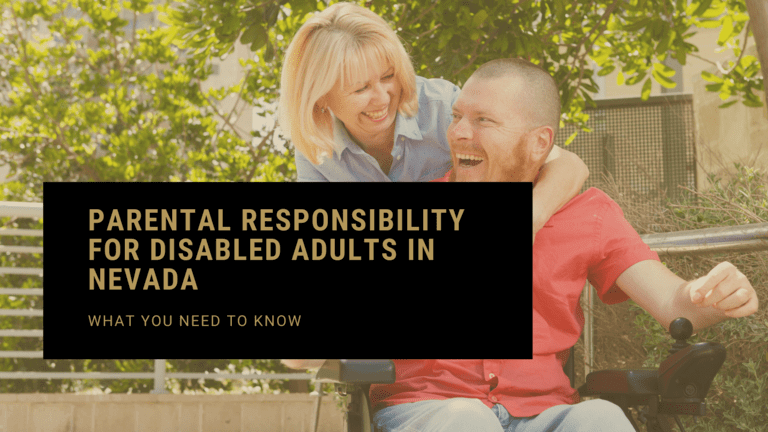When children with special needs mature into adulthood, their challenges don’t simply evaporate. The case of Davitian-Kostanian v. Kostanian provides a spotlight on this often overlooked aspect of family law and paints a picture of what many parents face when seeking continued support for their adult children with special needs.

The Heart of the Matter: Alex's Story
Picture this: after 25 years, a marriage comes to an end. Now, introduce a child, Alex, with autism, into this already emotionally charged scenario. The financial responsibilities towards Alex were straightforward while he was a minor. But what happens when such a child becomes an adult? Do the obligations cease? Should they?
Understanding the Initial Decision
When Noune, Alex’s mother, stood on the precipice of receiving her last alimony payment, she reached out to the district court, hoping to extend the support for her now-adult son. But she was met with a wall. The court’s perspective was clear-cut: Alex was an adult, and therefore, outside their jurisdiction for child support.
But What About Alex?
This is where the story takes a turn and becomes the beacon for countless parents navigating similar waters. Nevada’s NRS 125B.110 statute is meant to provide a safety net for adults like Alex. If a child has a handicap diagnosed before 18, parents can argue for continued support beyond the typical cut-off age. And this isn’t just about financial assistance—it’s about recognizing the prolonged challenges that families and individuals face when living with disabilities.
Why This Case Matters to Us All
This isn’t just about Noune and Alex. It’s about recognizing that children with special needs, even when they grow up, may continue to require support. As a society, we need to ask: Are our laws adequately addressing the needs of our most vulnerable adults?
A Lesson in Compassion and Responsibility
While the district court initially missed the mark by not delving deeper into the specifics of Alex’s needs, the case serves as a wake-up call. Parents need a clear avenue to provide for their children, regardless of age, if the need is genuine and pressing. For many families, this isn’t just a legal battle—it’s a fight for dignity, care, and recognition.
Why You Haven’t Hired a Guardianship Attorney Yet
Watch this short video to take the next big step toward defending your rights in a guardianship case.

Conclusion
The Davitian-Kostanian v. Kostanian case offers more than just a legal lesson. It’s a narrative that underscores the importance of continuously advocating for those who might not have a voice in the eyes of the law. For families with special needs adults, it’s a testament that their challenges are seen, heard, and deserve acknowledgment. The law should be a tool for protection and understanding, ensuring that every individual, irrespective of age or disability, has the support they need.

Frequently Asked Questions
What was the initial court decision regarding child support for Alex?
When Alex’s mother, Noune, sought to extend child support for her now-adult son with autism, the district court initially denied her request. The court’s perspective was that Alex was now an adult, so he was outside their jurisdiction for ordering child support.
What legal avenue did Noune have to try to obtain continued support for Alex?
Noune cited Nevada’s NRS 125B.110 statute, which provides that if a child has a handicap diagnosed before age 18, parents can argue for continued child support beyond the typical cut-off age of adulthood. This statute recognizes the prolonged challenges faced by disabled individuals.
Why does this case matter beyond just this one family?
This case matters because it highlights the needs of adult children with disabilities and their families. The case prompts an examination of whether societal laws adequately address the needs of vulnerable adults. It’s about ensuring support systems exist for those with lifelong challenges.
What lesson does this case provide?
The case serves as a lesson in compassion and ongoing parental responsibility. It underscores that clear legal avenues must exist to care for disabled children, regardless of age, when the need is legitimate. It’s about dignity and recognition of unique needs.
How does this case highlight advocacy for people with disabilities?
Initially denying Noune’s request, the court overlooked Alex’s needs. The case shows that continuous advocacy is crucial for those who may not have an equal voice in the legal system. It proves that challenges faced by people with disabilities and their families deserve acknowledgment and protection.
What message does the final ruling send?
The final ruling conveys that the law should provide protection and understanding for all individuals, including disabled adults. It states that necessary support should be offered irrespective of age or disability. It affirms a duty to ensure vulnerable populations have access to support.

Glossary
NRS 125B.110: Nevada statute allows parents to petition for continued child support for a disabled child over 18 if the disability was diagnosed before age 18.
District court: The court initially denied Noune’s request to extend child support for her adult son, Alex.
Autism: Alex’s diagnosis that Noune used to petition for extended child support under NRS 125B.110. A developmental disability that affects communication and behavior.
Child support: Financial support paid by a parent to help with child-raising costs. Typically, it ends when the child turns 18.
Adult disability: Alex’s autism continued into adulthood, prompting the need for extended support.
Compassion: Caring, sympathy, and concern for the suffering of others. The case highlights the need for compassion for disabled adults.
Parental responsibility: Ongoing duty of parents to care for children, even adult children with disabilities like Alex.
Advocacy: Publicly supporting or recommending a cause. The case emphasizes advocating for the needs of disabled individuals.
Vulnerable populations: Groups at higher risk for poor health or other social outcomes. People with disabilities are considered a vulnerable population.
Dignity: Worthiness of honor and respect. A driving force behind the case was the dignity of disabled adults.

More Resources for You
Our esteemed lead attorney, Molly Rosenblum Allen, Esq, has also crafted a suite of resources to guide you through the intricacies of guardianship matters. Whether you’re dealing with child or adult guardianship, seeking to understand legal forms, or navigating the responsibilities involved, these resources provide comprehensive information and support:
Las Vegas Guardianship Attorney: Expert legal guidance for guardianship cases within Las Vegas, ensuring you navigate the process with professional support.
Legal Guardianship: A thorough overview of the legal guardianship process, helping you understand the responsibilities and legalities involved.
Guardianship Forms: Access to essential forms and documents required in the guardianship process, along with guidance on how to correctly complete and submit them.
Guardianship of a Child in Las Vegas: Specialized advice for establishing guardianship of a child in Las Vegas, ensuring the child’s best interests are at the forefront.
Adult Guardianship: Insightful information on adult guardianship, providing clarity and support for those undertaking this significant responsibility.
Types of Guardianship: Detailed exploration of the different types of guardianship, helping you understand the options and choose the most suitable path.
Pros and Cons of Guardianship: A balanced view of the advantages and challenges involved in guardianship to help you make informed decisions.
Dependency Cases: Guidance on navigating dependency cases with the aim of protecting the rights and wellbeing of those involved.
Terminate Legal Guardianship: Vital information for those seeking to understand the process and implications of terminating a legal guardianship.
Nevada Power of Attorney: Expert advice on establishing a Power of Attorney in Nevada, ensuring your rights and the rights of your loved ones are protected.
Molly Rosenblum Allen, Esq’s commitment to providing comprehensive and accessible legal resources reflects her dedication to supporting you through every step of your guardianship journey. We invite you to explore these valuable resources, designed to offer guidance and clarity in your time of need.

Offsite Resources You May Find Helpful
Nevada Revised Statutes (NRS) 125B.110: This is the official link to the Nevada statute that allows parents to petition for continued child support for a disabled child over 18 if the disability was diagnosed before age 18.
Nevada Disability Advocacy & Law Center: A non-profit organization dedicated to advancing the rights of persons with disabilities and providing legal advocacy services on their behalf.
National Resource Center on Supported Decision-Making: This organization provides resources for individuals with disabilities to help them make their own decisions about their lives.
Nevada PEP: A non-profit organization that provides information, services, and training to Nevada families of children with disabilities, including those transitioning to adult services.

A Special Message from the Author, Our Lead Attorney

Molly Rosenblum, Esq
Thank you for reading through this resource on the intricacies and importance of the Davitian-Kostanian v. Kostanian case. I hope you gained insight into families’ challenges when seeking continued support for adult children with special needs.
At The Rosenblum Allen Law Firm, we have many years of experience successfully handling complex family law cases like this one.
We understand the emotional and financial stakes of securing your child’s future wellbeing and dignified care.
If you face a similar situation, please know you don’t have to go through it alone.
Our team of compassionate attorneys is here to guide you. We will fight tirelessly to help you obtain the assistance your family deserves.
Please call us at (702) 433-2889 to learn how we can help.
While we do not offer free consultations, we provide reasonable rates and flexible payment plans.
Thank you again for your interest.
Together, we can work towards positive change for families navigating the challenges of caring for adult children with special needs.
Sincerely,
Molly




